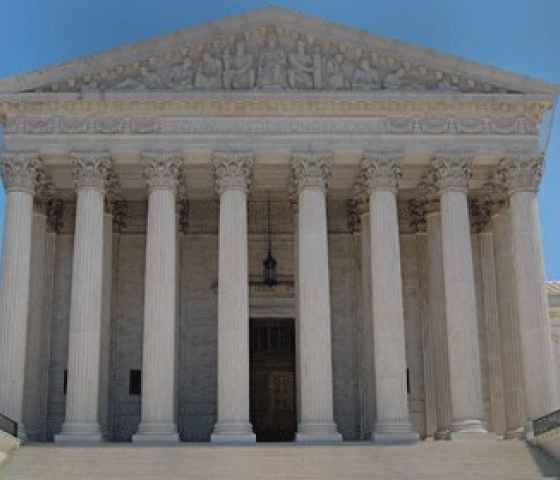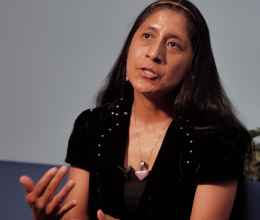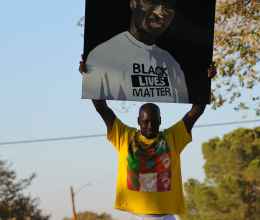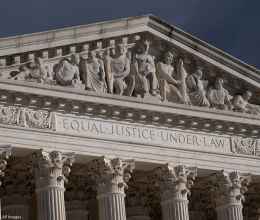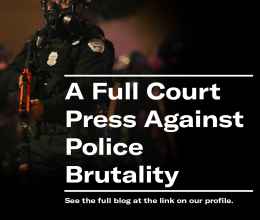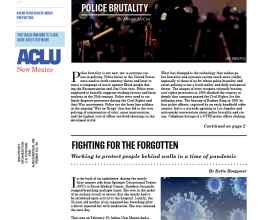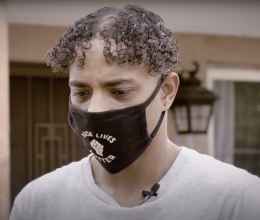ACLU-NM client Jordan McDowell speaks out about racial discrimination at Allsup’s
When pre-med student Jordan McDowell walked into a Santa Fe Allsups while on a school trip last August, he expected to purchase some snacks and get on his way. But after a store clerk called 911 to request McDowell be removed from the store for being “arrogant” and “black,” he began to fear that an ordinary shopping trip might quickly turn into a dangerous encounter.
His experience was just the latest in a series of racial profiling incidents to make headlines that year. McDowell, like dozens of others who’ve spoken out about their experiences, refused to be silent about the discrimination he faced. In December 2018, the ACLU of New Mexico and cooperating attorney Richard Rosenstock filed a complaint with the New Mexico Human Rights Bureau on McDowell’s behalf. Together, we’re fighting to ensure that all people in our state can enter a storefront without fear that they will be discriminated against or endangered because of the color of their skin.
The Torch: What happened when you went to Allsups in Santa Fe on August 3, 2018?
Jordan McDowell: I was there taking a brand new course, which involved exploring pueblo lands and learning about Native American culture. We were there for about 2 weeks so I went to Allsup’s to get snacks and drinks — things that would last me for the rest of the time that I would be there. Once I got in, I walked around for nine minutes and after nine minutes one of the store clerks stopped me and said I was looking “sneaky” and “suspicious.” I told her there were other people in the store who were there just as long as me. And I asked, “Why aren’t you telling anybody else that?” Then another store clerk, who was watching me the whole time I was in there, came around and just started watching as we continued to talk back and forth. And that store clerk tells me, “you need to go, you need to go.” So I asked her, “Why do I need to go?” And she said, “Ok, you know what, I’m just calling the police.” And that’s when she told the dispatcher she wanted me out because I was “arrogant.” Because I was “black”.
The Torch: The police actually came. How did they handle the situation?
Jordan McDowell: They came, but they said “well, we weren’t going to come, we weren’t taking this seriously. This was just on the way, so we just stopped by and you came up to us,” which I did. As the car pulled up in the parking lot and parked, I walked up to the police car myself.
The Torch: Do you think it was an appropriate response?
Jordan McDowell: The appropriate response for me would be just not coming in the first place because for me it was a traumatic experience — not just dealing with racism but getting the police called on me and thinking, “Okay they’re really coming and going to remove me from this store for being black.” I think just not responding to racial profiling instances would be the best bet.
The Torch: There are a lot of experiences like yours that have made news headlines in the last year. Do you feel like the discrimination you faced is similar to some of these other stories?
Jordan McDowell: Oh yes, most definitely. I did a interview for the university I go to in New Orleans and that’s one of the reasons I gave for why I’m so willing to speak up and speak out. I was always taught that my voice is the the most powerful thing that I have and nobody can take it from me. I have to speak up because there are people like Trayvon Martin and Tamir Rice who were racially profiled and didn’t live to tell their side of the story. I have to tell my side of the story and I have to let the public know that not only is this not okay, it never will be okay.
The Torch: How has this experience affected you personally?
Jordan McDowell: It really opened my eyes up to the world. I mean I always knew it, but this incident really showed me there’s still a lot of racism in this country. It’s one thing to see it and it’s another thing to actually deal with it and go through it. I think for the rest of my life this experience is going to be with me.
The Torch: What would justice look like to you?
Jordan McDowell: I want to see that this type of situation doesn’t happen ever again to African Americans where they go into a store and walk out feeling the way I felt, really questioning did I do something wrong? You should never question if being African American in this country is wrong. You should never be made to feel like you did something wrong because of your skin color. I want this to be a stepping stone for people to understand this will never be tolerated and it’s never right. And for all African Americans out there going through this, your voice is the most powerful thing that you have and just like me you have to use it.
